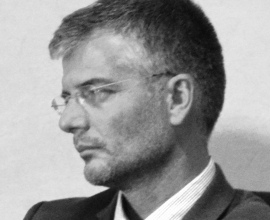A thousand ways of growing old
23/04/2015
PrintLluís Francesc Peris Cancio in Recíprocamente
We all grow old. Time is given to everyone alike, but not all of us live the passage of time in the same way. Some show it more than others do but, inexorably, we all evolve. We do not altogether stop being what we have been so far, but we reach the new maturity of experience, together with the more apparent limits we need to accept. Life experience is the reason why there are no two elder persons alike.
By the same token, the welfare system adopted in Europe and in Latin America are growing old, too. In both national contexts protection systems are being undermined by the rise of the elder population as compared with the active population. Thus, the strength and sustainability of policies designed to ensure social rights to the most vulnerable are being put to the test. Such new challenges are best tackled in contexts where a solid protection system has successfully developed, and where some balance has been kept. Those who know how to take care of themselves age more gracefully.
In Latin America this demographic transition is taking place at a fast rate, even in countries whose economic development has been slighter. Social protection systems inherited a tradition of offering coverage for monetary income after retirement, while basically leaving the care giving of dependent people to their relatives.
Within families care giving duties are usually assigned to women, in consequence of their traditional and implicit role as care givers, which is still customary in many cultures. In addition to this, it should be noted that women who devote the greater part of their lives to care giving are less likely to receive it when they need it, because their work does not produce any labour right. It is necessary to apply a gender perspective when studying the ageing process in order to identify the distinctive traits in persons… as well as in welfare systems.
The support capacity of families towards their elder members is variable, since they are affected by different types of factors such as urbanization, the reduced size of the families themselves, the migrations of young adults, etc. Therefore, the overall picture of the development of social protection systems targeted for elders appears rather mixed within the region. Whereas the countries of the continent’s Southern Cone, with a marked ageing of the population, have long adopted extensive social security systems, other countries with a more numerous population of elders and quick demographic ageing are nonetheless devoid of an acceptable coverage.
The development of social protection integrated services for the coverage of dependency risks is therefore needed as a balancing element in today’s situation. So far, the majority of Latin American States usually acts in a subsidiary way,offering assistance to dependent elders only if they lack family support and, moreover, if their economic resources are insufficient, thus excluding from their services wide sectors of the middle and middle-low classes, which are not qualified to receive public assistance. We are still a long way off the development of public policies supporting elders so that they may live on while keeping all their emotional bonds intact, even if they present an hazardous health situation requiring assistance.
The objective of the universalization of services is gaining ground, jointly with a new paradigm concerning the ways to bring it about. Dedicated services are hinged on elders’ rights through a combined offer that may facilitate their living with dignity and independently their daily lives. To this purpose, it takes into account the inclinations, lifestyles, and beliefs that characterized an elder during his/her previous life.
The challenge of individualization is also the focal point of dedicated services in Europe, whose orientation has recently evolved learning from the errors made in the past, and searching for more ambitious objectives in terms of quality in the provision of services. Elders are now considered as full-fledged protagonists in the definition of the modes of assistance, jointly with their families, where this is feasible. Like every process tending to increase quality, this improvement of the system presupposes investments that represent a financial effort for the States’ budgets.
Thus the “old continent” shows a double nature of the ageing process that is crucial to understand: to the ageing “from above”, consisting in the increased absolute numbers of the elder population thanks to an improved quality of life and of medical progresses, we can add another type of ageing that we will define as “from below”, brought about by the progressive reduction of births, an aspect that is particularly palpable in Mediterranean countries.
In this second instance, which is most important for fiscal balance, there appears the influx of variables such as the greater economic hardships that young countries are facing due to the flexibilization of the market and to the lack of resources for child care, thus highlighting the need for an extensive and well-balanced assistance policy for all sectors of the population of a national context, since demographic change does not determine social policies; conversely these last, or the lack thereof, influence the demographic structure, with different consequences for its sustainability.
From this we may deduce that the interrelation among different sectors of public policies into a synergic dynamics may keep welfare alive in a country: an inclusive and standardized labour market, policies for generalized housing, an effective management of migratory movements, the quality and widening of specific services for infants, the promotion of an active and participative society are some of the “vitamins” that a State needs to stay in shape while managing the demographic transition, and to ensure quality services for elders. Or, if you like it better, the most intelligent way to age…
Lluís Francesc Peris Cancio, Técnico de Políticas Sociales de EUROsociAL

